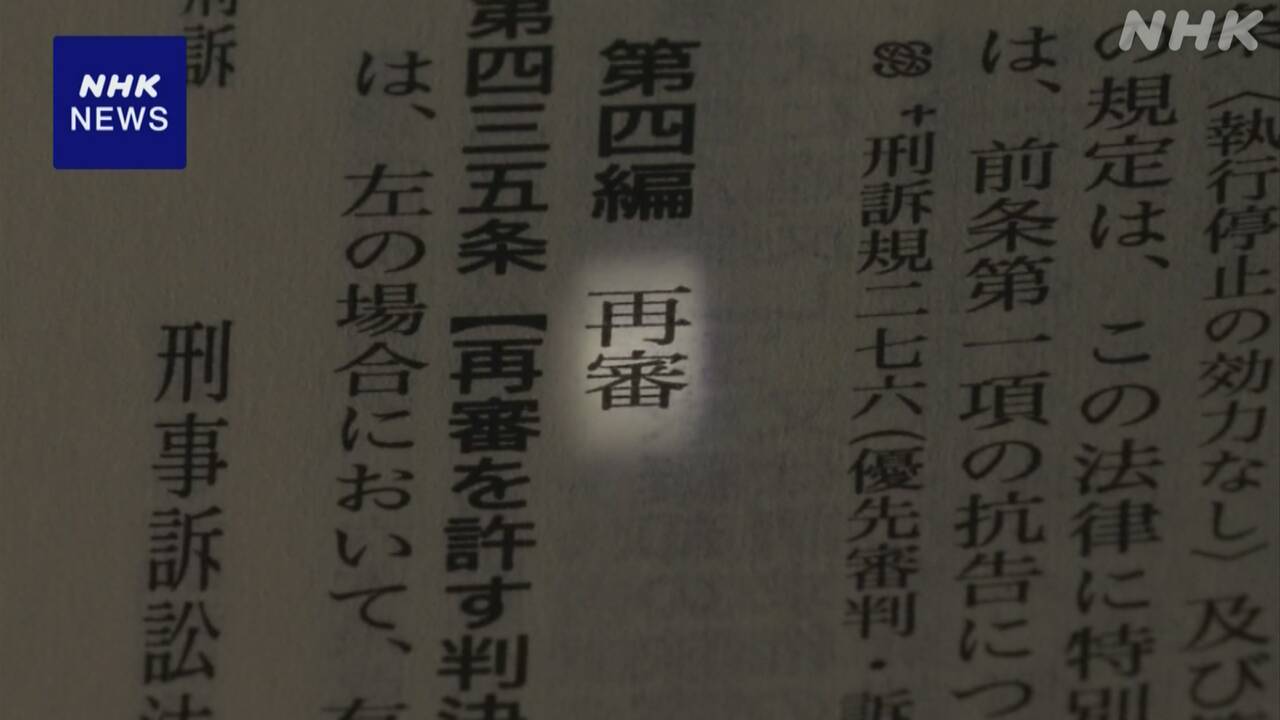The retrial of Iwao Hakamada, who was sentenced to death for crimes such as robbery and murder, is being held over a long period of time, with it taking more than 40 years to decide on a new trial.In an effort to quickly provide relief to victims of wrongful convictions, A bipartisan parliamentary group has been established to begin considering the nature of the retrial system, including legal revisions.
The retrial system is stipulated in the Criminal Procedure Law, but it has never been revised for over 70 years, and unlike regular criminal trials, there are no specific rules on how to proceed with the trial.
It has been pointed out that as a result, the hearings for requests for retrial are taking a long time, which is hindering exoneration.
In the case of Iwao Hakamada, who was sentenced to death for the murder of a family of four in Shizuoka Prefecture 58 years ago, it took more than 40 years from the time he requested a new trial until the decision was made last year to start a retrial.
Against this backdrop, a bipartisan coalition of parliamentarians has been established to review the retrial procedures and provide prompt relief to victims of false accusations.
With the participation of the leaders of both the ruling and opposition parties, an inaugural general meeting will be held in March to begin consideration of the nature of the retrial system, including legal revisions.
Regarding the retrial system, the Japan Federation of Bar Associations (Japan Federation of Bar Associations) has published a written opinion calling for legal reform, and the Ministry of Justice's panel of experts is discussing how evidence should be disclosed.
Current status and issues surrounding the retrial system
Regarding the retrial procedure, some are calling for a review of the law, as it takes a long time to hear the case and prevents victims of false accusations from receiving early relief.
The provisions regarding retrials were established in the Criminal Procedure Code, which was enacted 100 years ago in 1924.
After the war, when the current Criminal Procedure Code was enacted, it was inherited almost unchanged and has never been revised since then.
There are 19 articles, but unlike regular criminal trials, the procedure and content of the procedures are not specified in detail.
The proceeding of the trial is left to the judge's discretion, and depending on the case, the ``retrial request'' stage, which determines whether to proceed with a retrial, can take a long time.
Since the end of the war, four people have been acquitted in retrials after being sentenced to death, but in each case it took more than 20 years from the time the petition was filed until the retrial was decided.
In the case for which the court decided last year, it took 42 years for Iwao Hakamada to receive a retrial from the time he first filed a motion.
In addition, in February of last year, more than 20 years after the first petition was filed, the Osaka High Court granted a retrial for a robbery and murder case that occurred in Hino Town, Shiga Prefecture in 1984, but the prosecution was dissatisfied and filed a special appeal to the Supreme Court. , the hearing continues.
The man who was sentenced to life imprisonment in this case continued to protest his innocence, but died at the age of 75 while serving his sentence.
In response to this situation, the Japan Federation of Bar Associations (Japan Federation of Bar Associations) compiled a written opinion last year calling for legal reform.
In order to avoid prolonging the process, specific provisions should be established regarding the disclosure of evidence, just as in regular trials, and if the court approves a retrial, the prosecution should be prohibited from filing an appeal. That's what I'm complaining about.
Discussions have also begun at the Ministry of Justice's expert panel regarding the disclosure of evidence in retrial proceedings.
On the other hand, in response to the point that appeals by prosecutors are a factor in prolonging trials, Minister of Justice Koizumi said at a press conference in October last year, ``If the right to appeal is abolished, there will be an illegal and unjust decision to start a retrial.'' "If this happens, there will be no room for correction. This is related to the state of the judicial system as a whole, so this should be carefully considered."

